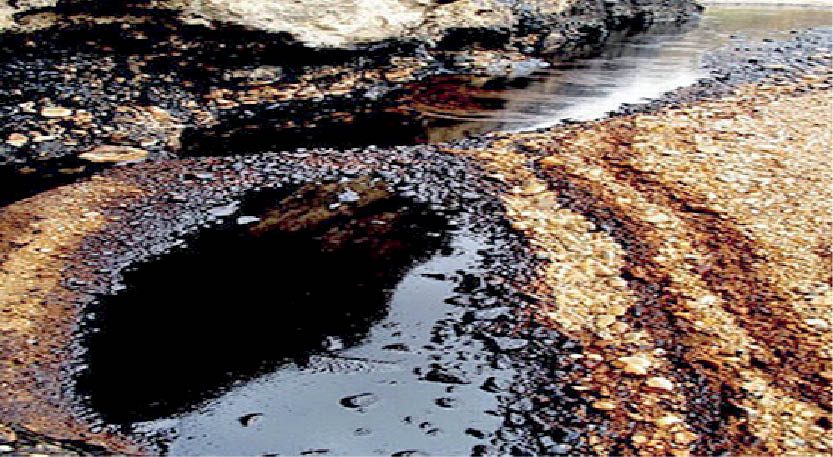What is Natural asphalt?

Natural asphalt, also known as asphaltum or bitumen, is a sticky, black, and highly viscous liquid or semi-solid form of petroleum. It occurs naturally in asphalt lakes and rock asphalt deposits, often mixed with sand, clay, and other minerals. Natural asphalt has been used by humans for thousands of years for various purposes, including as a waterproofing agent, adhesive, and as a binding material in road construction. It is different from refined asphalt, which is produced by distilling crude oil.

Elica Gilsonite supplier of Native asphalt
roudly declare that Elica Gilsonite is one of the premier producers of Natural asphalt, also known as Asphaltum. We manufacture this valuable form of natural asphalt using pure and unique Gilsonite resources. Additionally, we produce other materials such as Gilsonite, Gilsonite asphalt, Gilsonite bitumen, natural bitumen, and bitumen.
Certainly! Here’s a comprehensive description highlighting the suitable features for Elica Gilsonite:
“Elica Gilsonite proudly stands as a leading producer of Natural asphalt, delivering top-tier products tailored to meet diverse needs. Our prominent attributes include:
- Superior Quality: We harness the unparalleled resources of Gilsonite to craft products that excel in quality, durability, and performance. Our commitment to excellence ensures that every batch meets stringent standards.
- Extensive Product Range: Elica Gilsonite offers a diverse portfolio encompassing Natural asphalt, Gilsonite, Gilsonite asphalt, Gilsonite bitumen, natural bitumen, and bitumen. This comprehensive range caters to various industries and applications, providing solutions for construction, infrastructure, and industrial needs.
- Innovative Solutions: With a focus on innovation, we continuously strive to enhance our production processes and develop new products to address evolving market demands. Our research and development efforts drive technological advancements and ensure that our offerings remain at the forefront of the industry.
- Sustainable Practices: At Elica Gilsonite, sustainability is ingrained in our operations. We prioritize environmentally friendly practices throughout the production cycle, from sourcing raw materials to waste management. Our commitment to sustainability extends to minimizing our carbon footprint and promoting eco-conscious solutions.
- Customer-Centric Approach: We place utmost importance on customer satisfaction, striving to exceed expectations at every stage of the customer journey. Our dedicated team provides personalized support, ensuring seamless collaboration and reliable service.
- Global Reach: With a strong global presence, Elica Gilsonite serves customers worldwide, delivering quality products and solutions across borders. Our extensive distribution network and strategic partnerships enable us to meet the needs of diverse markets efficiently and effectively.
In essence, Elica Gilsonite combines superior quality, innovation, sustainability, and customer-centricity to emerge as a trusted partner in the realm of Natural asphalt and related products.”
Read More: gilsonite powder
What is Native asphalt?
Native asphalt, also known as natural bitumen or tar sand, is a type of asphalt that occurs naturally in geological formations. It is formed through the natural processes of petroleum migration and subsequent evaporation, oxidation, and biodegradation. Native asphalt typically contains high levels of sulfur and other impurities compared to refined asphalt.
Native asphalt deposits are found in various parts of the world, often associated with oil sands or oil shale formations. These deposits can range from semi-solid to solid forms, depending on factors such as temperature, pressure, and geological conditions.
Historically, native asphalt has been used for various purposes, including as a waterproofing agent, adhesive, and as a binding material in road construction. However, its use has become less common compared to refined asphalt due to the challenges associated with processing and refining the high-sulfur content.
Types of Natural Asphalt
Natural asphalt, also known as asphaltum or bitumen, comes in several types, each with its own characteristics and applications. Here are some of the main types:
- Gilsonite: Also known as uintaite, Gilsonite is a naturally occurring solid hydrocarbon mineral similar to asphalt. It is mined primarily in the Uinta Basin of Utah, USA. Gilsonite has a high melting point and is often used in various applications such as asphalt modifiers, drilling mud additives, and inks.
- Lake Asphalt: This type of natural asphalt is formed in asphalt lakes, which are natural reservoirs of asphalt located in certain parts of the world, including Trinidad and Venezuela. Lake asphalt typically contains less sulfur and impurities compared to other types of natural asphalt.
- Rock Asphalt: Rock asphalt is formed from natural asphalt mixed with sand, gravel, or limestone. It occurs in rock formations and is mined like other minerals. Rock asphalt deposits are found in various locations globally, including the United States, Europe, and Asia.
- Tar Sands: Tar sands, also known as oil sands, are sedimentary formations containing a mixture of sand, clay, water, and bitumen. Bitumen extracted from tar sands can be processed to produce synthetic crude oil or refined into various petroleum products, including asphalt.
- Maltha: Maltha is a naturally occurring viscous mixture of bitumen, mineral matter, and water. It is typically found in association with oil shale deposits and is less commonly used compared to other types of natural asphalt.
Each type of natural asphalt has its own unique properties and suitability for different applications, ranging from road construction and paving to waterproofing and industrial uses.
Natural Asphalt History
The history of natural asphalt stretches back thousands of years, with evidence of its use dating to ancient civilizations. Here’s a brief overview of the history of natural asphalt:
- Ancient Use: Some of the earliest known uses of natural asphalt date back to ancient civilizations such as the Sumerians, Babylonians, and Egyptians. These cultures utilized natural asphalt for various purposes, including waterproofing boats, sealing jars, and embalming mummies.
- Mesopotamia and the Near East: In Mesopotamia (modern-day Iraq) and other regions of the Near East, natural asphalt was mined from surface deposits and used in construction projects, particularly for paving roads and sealing structures.
- Classical Antiquity: The ancient Greeks and Romans also made extensive use of natural asphalt. The Greeks referred to it as “asphaltos,” meaning “secure” or “reliable,” highlighting its use as a waterproofing material. The Romans used natural asphalt in their famous architectural projects, including the construction of aqueducts, baths, and roads.
- Medieval Europe: During the Middle Ages, natural asphalt continued to be used in Europe for various applications, including waterproofing roofs, caulking ships, and as an adhesive in construction. However, its use declined somewhat during this period due to the loss of knowledge and technology from the classical world.
- Rediscovery and Revival: Natural asphalt experienced a resurgence in Europe during the Renaissance as interest in classical learning revived. Engineers and architects rediscovered the practical uses of asphalt, leading to its reintroduction in construction and engineering projects.
- Modern Era: In the 19th and 20th centuries, advancements in technology and industrialization led to the widespread extraction, refining, and use of natural asphalt for road construction, waterproofing, and industrial applications. The development of the petroleum industry also facilitated the production of refined asphalt from crude oil.
Today, natural asphalt continues to be an important material in various industries, including road construction, waterproofing, and the manufacturing of asphalt-based products. Its long history of use reflects its versatility, durability, and importance in human civilization.

Natural Asphalt Production Process
The production process of natural asphalt varies depending on the type of natural asphalt being extracted (e.g., Gilsonite, lake asphalt, rock asphalt). However, here is a generalized overview of the production process:
- Exploration and Extraction: The first step in natural asphalt production is the exploration and identification of suitable deposits. This may involve geological surveys, drilling, and testing to assess the quality and quantity of the asphalt reserves. Once a suitable deposit is identified, extraction methods are employed to remove the natural asphalt from the ground.
- Mining or Drilling: Depending on the type of natural asphalt deposit, mining or drilling methods may be used for extraction. For solid deposits like Gilsonite or rock asphalt, mining techniques such as open-pit mining or underground mining may be employed. For liquid or semi-solid deposits like lake asphalt, drilling wells or using surface mining techniques may be necessary.
- Crushing and Processing: After extraction, the natural asphalt is crushed and processed to reduce its size and remove impurities. This may involve crushing machinery, grinding mills, and screening equipment to achieve the desired particle size and purity.
- Refining (optional): In some cases, particularly for certain types of natural asphalt with high impurity content, refining processes may be employed to further purify the material. Refining techniques may include filtration, centrifugation, or chemical treatments to remove sulfur, water, and other contaminants.
- Packaging and Distribution: Once the natural asphalt is processed and refined (if necessary), it is packaged into various forms for distribution and sale. This may include packaging in bags, drums, or bulk containers, depending on the intended use and market requirements.
- Quality Control: Throughout the production process, quality control measures are implemented to ensure that the natural asphalt meets specified standards and requirements. This may involve laboratory testing, quality assurance procedures, and compliance with industry regulations and standards.
- Market Distribution: The final step involves distributing the natural asphalt to customers and end-users. This may involve transportation by truck, rail, or ship to local or international markets, where it is used in various applications such as road construction, waterproofing, and industrial manufacturing.
Overall, the production process of natural asphalt involves several stages, from exploration and extraction to processing, refining, and distribution, with a focus on ensuring product quality and meeting market demands.
Source: What is Gilsonite?
